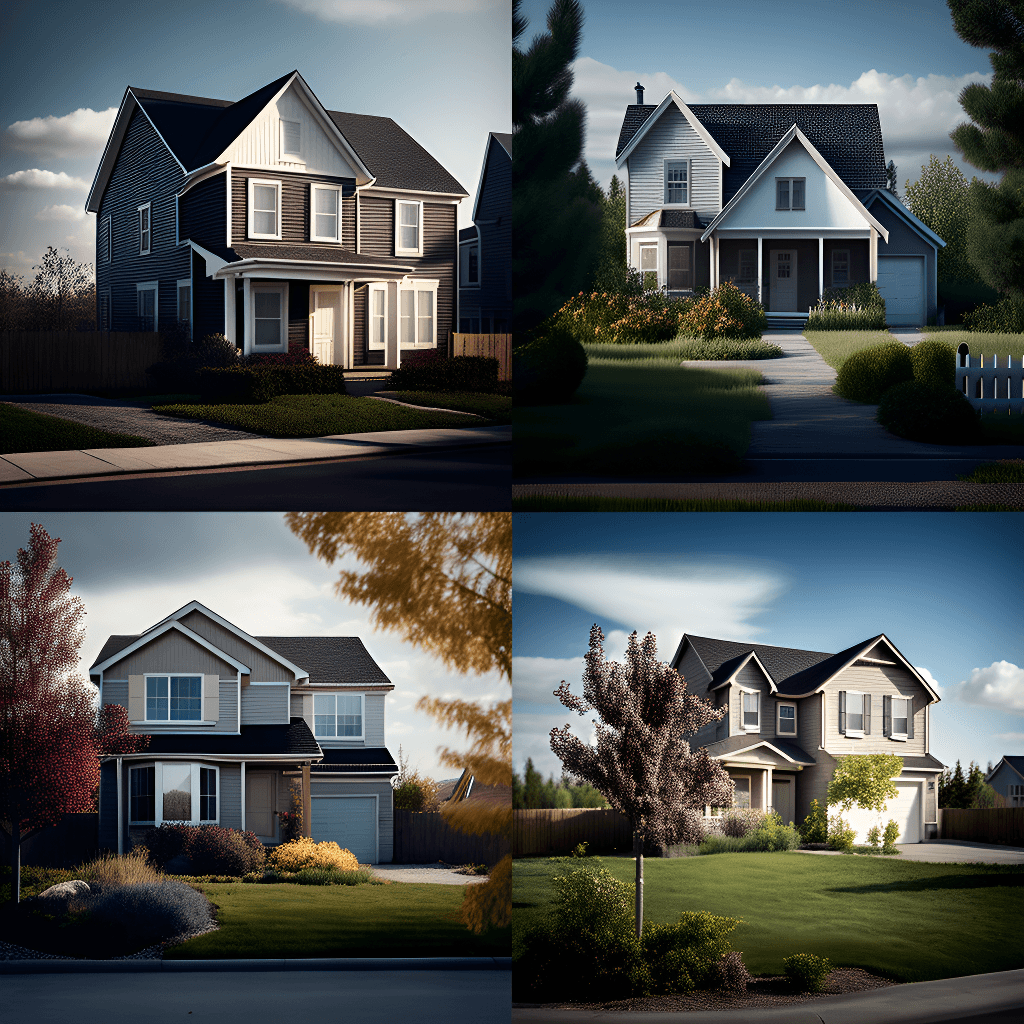The Future of Generative AI in Custom Home Design: Predictions and Trends
AI is making custom home design more personalized than ever. Explore the trends shaping the future of tailored home creation.

Patrick Murphy
CEO & Co-Founder
When it comes to building a custom home, the design process can be both exciting and overwhelming. Luckily, technology is making it easier to create a home that is truly one-of-a-kind and perfect for you. One of the most promising technologies in this field is generative AI. This technology can help architects and builders create custom homes that are tailored to the specific needs and preferences of their clients. In this blog post, we will explore some of the predictions and trends for the future of generative AI in custom home design and how it can make your dream home a reality.
Predictions for the Use of Generative AI in Custom Home Design
Increased Efficiency and Speed in the Design Process: Generative AI can automate many of the tedious and time-consuming tasks associated with designing a custom home. This means that architects and builders can focus on the fun part - creating a design that is uniquely yours. With generative AI, the design process is much faster, meaning you can start building your dream home sooner.
Improved Design Quality: Generative AI can generate a wide range of design options based on a set of parameters, which can help architects and builders to create more unique and innovative designs. This means that your custom home can be designed to be energy-efficient, structurally sound and more. Additionally, generative AI can also optimize designs for energy efficiency, structural integrity, and other important factors, ensuring that your home is built to last.

Increased Personalization: As generative AI becomes more advanced, it will be able to take into account the specific needs and preferences of individual clients. This means that your custom home will be truly personalized to your unique requirements. From a home that is designed to take advantage of natural light to one that is designed to be wheelchair accessible, generative AI can make it happen.
Elements necessary to make generative AI mainstream
Cloud Computing: Cloud computing will play an increasingly important role in the development of generative AI for custom home design. With the ability to access vast amounts of data and computing power, generative AI systems will be able to generate more complex and detailed designs. This will allow architects and builders to incorporate even more features into your custom home.
Personalized Large Language Models (LLMs): Personalized large language models can be used to help architects and designers understand the preferences and needs of their clients. For example, a model trained on data from previous home design projects can be fine-tuned to understand the specific requirements of a client, such as the need for a home office or a separate guest suite. This can help architects and designers create custom designs that are more likely to meet the needs and preferences of their clients.
A usable user interface (UI) and user experience (UX): A usable UI/UX can help architects and designers easily input data and generate custom home designs. For example, an intuitive interface can allow architects and designers to quickly and easily input information such as the number of rooms, the size of the lot, and the desired architectural style, and then generate a 3D model of a custom home. This can help architects and designers quickly test and iterate on different design options, and ultimately create custom home designs that are more likely to meet the needs and preferences of their clients.
The Future of Custom Home Design
As the world continues to focus on sustainability and personalized design, the use of generative AI in custom home design is likely to become even more important in the future. In particular, we can expect to see the following trends and developments in the use of generative AI in custom home design:
Automate tedious and time-consuming tasks in the design process of custom homes, leading to increased efficiency and speed.
Generate a wide range of design options and improve the design quality of custom homes.
Personalize custom homes to the specific needs and preferences of clients, making them truly unique.
Potential to revolutionize the way we design and build custom homes, leading to increased efficiency, improved design quality, and greater personalization.
Virtual reality (VR) is already being used to create virtual walkthroughs of custom homes, and it is likely that generative AI will be integrated into VR systems in the future. This means that you can experience your custom home designs in a more immersive way and provide architects and builders with valuable feedback. With VR, you can walk through your home before it is even built, making sure that it is perfect for you.
Conclusion
Generative AI has the potential to revolutionize the way we design and build custom homes. With its ability to automate tedious tasks, generate unique designs, and personalize homes to the specific needs of clients, generative AI will help architects and builders create homes that are both beautiful and functional. As the technology continues to evolve, we can expect to see increased efficiency, improved design quality, and greater personalization in custom home design. With generative AI, your dream home can become a reality in a faster and more efficient way. It's a technology that will not only make the design process more streamlined and efficient, but it will also allow for more unique and innovative designs.
